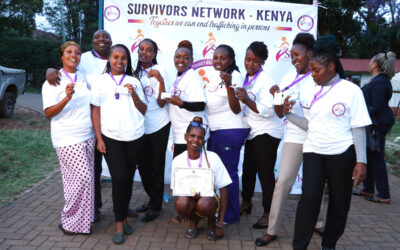Sewing factories that use slaves to make cheap clothes have become one of the newest battle fronts in the fight against human trafficking. A new investigation by one of our Brazilian partner organizations unveils just how important this effort can be. Repórter Brasil has just published an exposé of slavery involving the global clothing retailer Zara.
The report, From Moral Responsibility to Legal Liability, concludes that self-regulation by manufacturers isn’t enough to rid the world’s economy of slavery-tainted products. The authors call for mandatory regulations to hold producers of clothing legally liable for slavery in their supply chains.
Here’s a key except from the report:
“Poor working conditions in the clothing industry are not a new phenomenon. In fact, the garment sector was one of the first industries in which debates about supply chain responsibility and labor rights came to the fore. Since the late 1980s, public indignation about sweatshop conditions have catalyzed the development of initiatives to improve working conditions in the garment supply chains, such as company codes of conduct and multi-stakeholder initiatives. These initiatives have undoubtedly led to some improvements; still questions remain about the extent to which things have really changed for the better on the factory floor. Company codes of conduct, for example, look good in theory but in practice the effectiveness of these codes is often undermined by brand and retailer companies’ purchasing practices, which in recent years have come to be ever more focused on low prices and fast deliveries.”
The report details a raid at two “sweatshops” in São Paulo in 2011 that were suppliers for Zara Brazil. “Workers had to work for long days – up to 16 hours – and were restricted in their freedom of movement,” the report says. The authors analyze how this case – officially classified by government inspectors as “analogous to slavery” – revealed significant shortcomings in corporate and governmental responses to supply-chain slavery.
The report comes as regulators in Europe are moving forward with new rules on corporate liability for slavery-tainted minerals from Africa.
Read the full report here. Learn more about Repórter Brasil and our anti-slavery program in Brazil on our Brazil webpage. Learn more about removing slavery from products on our slavery-free commerce webpage and watch our business-briefing video on getting slavery out of corporate supply chains, Becoming a Slavery-Free Business.



